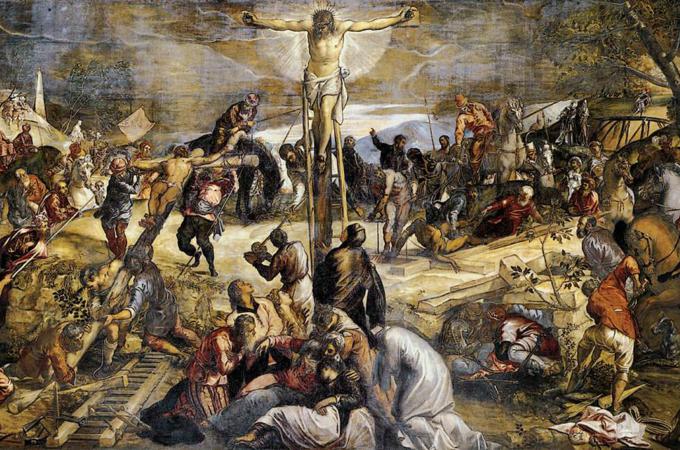The goal of Easter: To bring us to newness of life
What will you be celebrating this Easter? A Mystery? Yes!
The Paschal Mystery of Jesus Christ that lies at the very center of Christian faith and discipleship.
The word "paschal" comes from the Greek term, pascha, which goes back to the Hebrew, pesach, which refers to the annual commemoration by the Israelites of their liberating Passover from slavery in Egypt.
The Paschal Mystery is intended to pick up for Christians this rich Hebrew background and to locate the historical death and resurrection of Jesus as the establishment of a new, liberating Passover -- the Passover from slavery to sin to newness of life.
When we look closely at the life of Jesus, we see that it was a life lived out of love for others. And when we probe this life of love, we see that it is animated by the presence of a powerful paradox -- the paradox of finding life through death and of losing one's life to save one's life.
The spirit of this paradox is captured in the saying of Jesus that "those who want to save their life will lose it, and those who lose their life for my sake will find it" (Matt.16:25).
This striking paradox permeates his preaching and comes to a particular climax in his historical death and resurrection. Out of death comes new life! Living fruitfully requires a kind of dying.
Whenever we are faced in any way, then, with a form of "dying" or letting go, the Paschal Mystery of Christ is there to shape our perception of what is happening and give an affirming stamp to our hope that out of this "death" will come new life and growth.
Being a disciple of Christ involves living out of this paradox and allowing it to serve as a special pair of lenses which enable us to see into the nature of all reality. To see this mystery at play in the seasons of the year and the stages of our lives. No dying, no new life. No emptying, no being filled.
All along the way in relationships of friendship and love, people do "die" for the sake of each other. Spouses give themselves in costly love and parents sacrifice themselves out of love for their children. Friends make themselves available to serve each other's good in sometimes heroic ways.
Here is an essential truth of Christian faith: when we, like Jesus, are available for service in love at the cost of personal sacrifice, the very act of living is a share in the dying-rising of Christ.
We are engaged in daily rehearsals for our grand finale. Death and resurrection are not separate from life. They are not just future. They are present. To look upon the resurrection as a narrow escape from death is to miss the full meaning of human life, to miss the death and resurrection that are present in every day's living.
Death and resurrection are not to be pushed out of life, are not to be seen as ultimate events but as immediate experiences. They are not final events but daily choices. They are every step of the journey, the inner exodus from the old self to the new. "I die daily," said St. Paul. But he also rose daily.
Dying to what? Basically to sin and a self-centered existence. Dying to sin is not merely turning from evil, but turning to Christ ever more fully in a deepening process of constant, life-long conversion.
One illustration of it is seen in our struggle to let go of yesterday, of the past. Not forget it, just let it go. Whether it's turning 21, 50, 65, or 80. Whether it's losing our health or our hair, our money or our memory, a person we love or a possession we prize.
"Dying to self" is letting go of where our security once lay. Whether it's family or friends. Whether it's being retired, divorced or disabled. Whether it's a change of life or a change of pace. We must not cling to what once was but is no more.
Wherever or whatever or with whomever we've been, we dare not cling. We have to move on. And all moving on is a dying, a letting go. It's the imprint of the Paschal Mystery of Easter on our lives.
Only by dying will we rise to fresh life. Only by letting go of yesterday will we open ourselves to tomorrow where the seeds of fresh life await us. The resurrection is a call to newness of life.
The great Easter truth is not that we are to live newly only after death, but that we are to live newly now because of our experience of Christ's continued, empowering presence through the Holy Spirit.



















